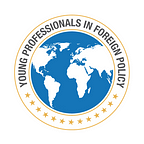Venezuela’s Immigration Crisis: An Update from the Colombia/Venezuela Border
By Michael Berman
Facing severe inflation, food shortages and a collapsing economy, over 3.6 million Venezuelans have fled the country. And according to the United Nations High Commissioner for Refugees (UNHCR), by the end of 2019, this will climb to 5.4 million.
Colombia, which shares a 1,400-mile border with Venezuela, has received the lion’s share of migrants and is weathering this storm by proactively integrating Venezuelans into the domestic economy. For instance, the Colombian government has granted over 400,000 “permisos especial de permancia (PEP),” or special residency permits, to recent immigrants. These allow migrants to work, access the public healthcare system, and attend primary and secondary schools for up to two years. In addition, the Santos administration gave 1.6 million Venezuelans that were transiting through Colombia “tarjetas de movilidad fronteriza,” or border movement cards. All of these efforts are commendable since many immigrants enter Colombia without any proper documentation at all. But as immigration flows increase, from a trickle to a flood, fissures are beginning to appear.
Cúcuta
To assess the governments’ and humanitarian networks’ response to this crisis, I recently traveled to Cúcuta, Colombia. The city of Cúcuta sits on the western border of the Venezuelan town of San Antonio. And despite the town traditionally relying on international trade, currency exchanges, and gasoline, it now serves as an arrival point for hundreds of thousands of immigrants crossing the Simón Bolivar International Bridge.
While some immigrants receive passport stamps and PEP application instructions at the checkpoint — many do not. A family resting outside the “Centro de Migraciones,” the only publicized refugee shelter in Cúcuta, told us that despite using an official border crossing, they did not receive a stamp in their passport nor any form of temporary identification. Instead, they are stuck and are trying to save enough cash to rent an apartment.
With these issues in mind, there have been some efforts at mustering an international response. An example of this is the recently unveiled Refugee and Migrant Response Plan, a joint effort by the UNHCR, the International Organization for Migration, and South American and Caribbean countries. Yet, despite these recent efforts, with medical supply trucks burning at the Venezuelan border, there is scant evidence sufficient aid will arrive anytime soon.
In addition to having little international help, it is clear that the necessary infrastructure is not in place. As Venezuelan’s cross the Simón Bolivar International Bridge, they are not only welcomed by the bustling immigrant neighborhood of Villa Del Rosario, but the organization called “Coalición Ayuda y Libertidad” (Aid and Freedom Coalition) as well. This group, which provides medical treatment to new migrants, is loosely organized by allies of Juan Gauidó, but it is unclear from whom it receives funding. And while immigrants could use another checkpoint to receive vaccinations, the only other location that has similar capabilities primarily serves commercial vehicles.
Immigration is straining Cúcuta’s resources, giving it the third highest unemployment rate in Colombia. Due to this job shortage, most immigrants try to find work in the informal economy. Eduardo, a recent immigrant, sells cigarettes, juice and water for 15 cents per bottle to other immigrants and sightseers at the border. While discussing his work, he expressed indifference at the lack of help offered by the authorities and humanitarian groups: a typical response from most immigrants.
Another unfortunate immigrant, forced to work in the informal economy, is Leo, who arrived last year from Caracas and currently holds a job as a night security guard. Considering himself lucky after a stint in the Venezuelan military, he found work in Cúcuta guarding houses, receiving 32 cents (1,000 Colombian pesos) per home per night. With that income, he splits a $162 apartment with his friend and his friend’s mother.
Effects of military action
Any military conflict could ruin Colombia’s tenuous efforts at maintaining stability. Despite a 2016 peace treaty with the Revolutionary Armed Forces of Colombia, terrorist and paramilitary groups, like the National Liberation Army, occupy large swaths of territory on the eastern border of Colombia. In the event of military action or Venezuela becoming a failed state, rapidly formed evacuation routes would cross through these areas.
The impact of traversing these areas is hard to predict, but most likely, newcomers to the region would face abuse and could jeopardize the Colombian government’s control over this part of the country. Francisco Santos, Colombian ambassador to the United States, has described this as “probably the biggest national security challenge” Colombia faces and a “time bomb that is ready to explode.” A mass evacuation would quickly overwhelm Venezuela’s border towns and further destabilize Colombia, due to a lack of military resources and insufficient international aid infrastructure.
Unfortunately, the political consequences of taking action are dangerous for South America and the United States. A populist backlash in South American democracies against immigration, similar to Europe and the United States, could strain the Mercosur Residence Agreement or even the Southern Common Market (Mercosur) itself. This recent trend is problematic, as increased South American integration strengthens the entire Americas block and allows the United States to focus its resources on threats further abroad.
Conclusion
The United States and the international community must tread lightly. Currently, there is an opening to replace President Maduro with the young and scandal-free Juan Guaidó. However, any military action to make this a reality would further destabilize Colombia and the rest of the Americas. Fearing this outcome, the United States may prefer a weak authoritarian leader, such as Maduro, rather than face the cascading problems that would stem from armed conflict and regime change.
Michael Berman currently resides in Cartagena, Colombia and is a proud graduate of The George Washington University. Additional reporting was provided by Gustavo Valiente Mosquera with special thanks to Cheo Ferreira Saenz for lending his support.
